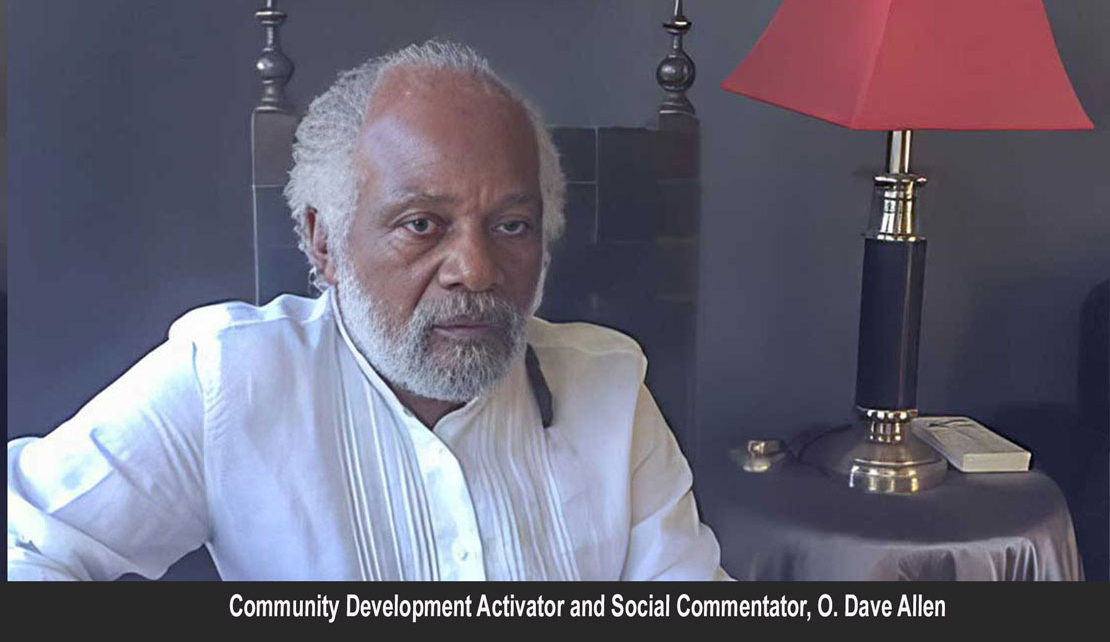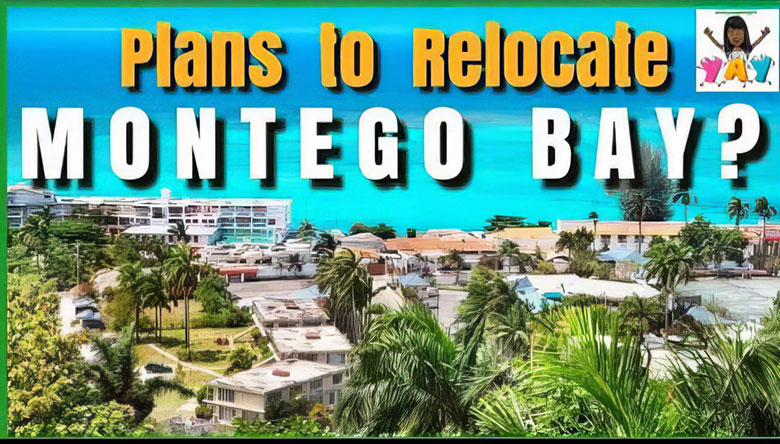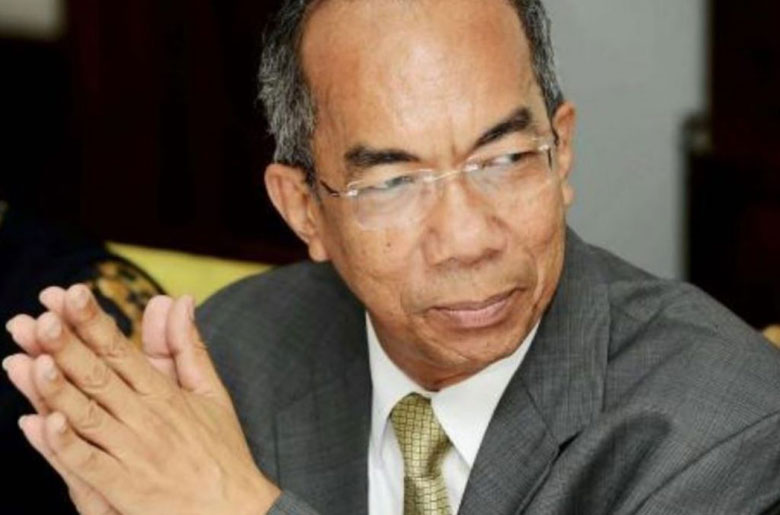JAMAICA | Social Welfare Development, Resonating with Jamaican Voters says O. Dave Allen

MONTEGO BAY, Jamaica, May 10, 2024 - In a recent Don Anderson Public Opinion Poll commissioned by the PNP, it was revealed that if a general election were to be held today, the People's National Party (PNP) would emerge victorious, with 36.8% of respondents expressing their support for the party.
In contrast, the Jamaica Labour Party (JLP) garnered 29% of the respondents' support, indicating a significant lead for the PNP in the eyes of the electorate.
The poll highlighted a crucial factor that has propelled the PNP to the forefront of public opinion – the perception that the party stands as the advocate for the poor, while the JLP is seen as the party of the elite.
This sentiment was echoed by 43.8% of respondents who believe that the PNP's historical commitment to social welfare programs has solidified its image as the party that genuinely cares for the less fortunate.
For many Jamaican voters, especially those with a deep-rooted understanding of the country's political landscape, the PNP's legacy of social policies aimed at uplifting the marginalized communities resonates strongly. One such policy that stands out is the PNP's land policy, which has had a profound impact on the lives of the underprivileged.
 The acquisition and titling of over 3,000 residents in areas like Lilliput, over 3, 000 lots in Barrett Hall, the transformation of Flanker and Rose Heights as a sustainable communities , the provision 5,000 housing solutions in Norwood, 1,500 in Retirement Estate, 200 in Cupper Penn , 700 in Red-Ground, as well as the resettlement of inner-city residents in Providence Heights, from areas like Hart Street, Railway Lane, and Barracks Road under the Relocation 2000 initiative, underscore the party's commitment to social justice and equality.
The acquisition and titling of over 3,000 residents in areas like Lilliput, over 3, 000 lots in Barrett Hall, the transformation of Flanker and Rose Heights as a sustainable communities , the provision 5,000 housing solutions in Norwood, 1,500 in Retirement Estate, 200 in Cupper Penn , 700 in Red-Ground, as well as the resettlement of inner-city residents in Providence Heights, from areas like Hart Street, Railway Lane, and Barracks Road under the Relocation 2000 initiative, underscore the party's commitment to social justice and equality.
Moreover, the creation of planned communities such as Cornwall Court, Farm Heights, Cornwall Gardens, Rose Mount Gardens, Catherine Mount, West Green, and Catherine Hall by the PNP further exemplifies the party's dedication to providing affordable housing and improving the quality of life for all Jamaicans.
These initiatives not only address the immediate needs of the poor but also pave the way for sustainable development and economic empowerment within these communities.
Access to land stands out as one of the most pressing challenges affecting the socio-economic landscape of St. James, Jamaica, with far-reaching implications for the ordinary citizens of the island nation.
This issue has not only hindered the growth and development of the population but has also resulted in a staggering 60% resorting to squatting as a means of securing shelter.
The lack of a progressive land policy that places the interests of Jamaica first represents a stark example of the inequities that continue to plague independent Jamaica.
Land access is not merely a matter of property ownership; it holds profound significance in the decolonization process and breaking the chains of intergenerational poverty.
The struggle for land rights is vividly manifested in the prevalence of land capturing activities with over twenty squatter settlements forming a necklace around the resort city of Montego Bay and high-end properties underscores the gravity of the situation.
The battle for land, particularly in commercial spaces within urban Montego Bay, faces additional challenges due to the artificial demand for land driven by foreign investors, notably Chinese nationals.
These investors have been acquiring available land at inflated prices, thereby increasing property values and placing land ownership beyond the reach of hardworking Jamaican citizens. The ownership of land on Barnett Street has been equated to a form of ethnic cleansing, highlighting the land access issue.
After 21 years of representing the people of North West St. James, Cabinet Minister Dr. Horace Chang, and Deputy Leader of the Jamaica Labour Party, have come under scrutiny for their lacklustre performance in addressing the pressing needs of Montego Bay .

One glaring example of this neglect is the stalled development of the People's Arcade, a crucial hub for street vendors in the area. Dr. Chang's failure to facilitate the transformation of this space into a viable marketplace has left many vendors struggling to operate in substandard conditions, with the Old Shoe market on Creek being dangled as an alternative.
The repeated disasters faced by these vendors, including three devastating fires and flooding incidents, underscore the urgent need for proactive leadership and sustainable urban planning in the region.
The Senior Member of Parliament and Deputy Prime Minster as well as the municipality have failed to initiate a comprehensive development Plan for the Greater Montego Bay Area, to replace the now defunct 2014 development plan, that would include reservations for industrial, commercial and green area for this and future generation.
As a consequence of this neglect, urban decay has become increasingly prevalent in areas outside the coastal region of Montego Bay.
Outside of the coastal areas, Montego Bay is a dump, characterised by a rundown town center, environmental degradation, and unsafe and dilapidated housing , absence of municipal services, inadequate sanitary facilities, crime, violence, drugs use, and prostitution.
Once prized middle class neighbours have been overrun with non-conforming uses with shops, bars garages and heavy duty equipment.

By distancing himself from the outdated approaches of senior officials like Dr. Horace Chang and Senator Charles Sinclair, Mayor Vernon can chart a new course for inclusive governance that prioritizes the needs and voices of the masses failing to do so he too will be washed away by the deluge to come.
To secure his future prospects as a representative of the people of Montego Bay, Mayor Vernon must champion initiatives that guarantee space and participation for all community members in the decision-making process.
By fostering transparency, accountability, and community engagement, Mayor Vernon can usher in a new era of progress and prosperity for the city, ensuring that the concerns of ordinary citizens are at the forefront of municipal policies and programs.
After Cabinet Minister Dr. Horace Chang, former Minister of Housing and Member of Parliament for North West St. James for over two decades, raises concerns about the commitment to addressing this critical issue.
The failure to initiate housing schemes or small business parks in the constituency exacerbates the challenges faced by residents in accessing affordable housing and entrepreneurial opportunities, perpetuating the cycle of land inequality and socio-economic disparities in the region.
Another factor that contributes to the PNP surge in the poll is that 14.8 per cent of the respondents said the PNP involved citizens in decision making. Under the Minister of Local Government and Community Development, Desmond McKenzie, this is not so. We have witnessed a remarkable decline in citizens participation in the local government process through the Parish Development Committee (PDC) and the Community Development Committee (CDC).
The PDC was established in Law during the PNP administration to provide a space for civil society to participate in the decision making process. This was a process enshrined in law that allow civil society with oversight responsible over the local Public Accounts Committee and to sit on other committees of the municipal corporation.
This is a process that was observed in the breech more often than observed. Thus, the present state of affairs now breeds cynicism and mistrust in the local authority.
To address these complex challenges and promote equitable development, urgent interventions are required to ensure that land resources are utilized in a manner that benefits the local population and fosters sustainable growth.
By implementing inclusive land policies and initiatives that prioritize the needs of Jamaican citizens, it is possible to pave the way for a more just and prosperous future for all residents of St. James and Jamaica as a whole.
-30-
